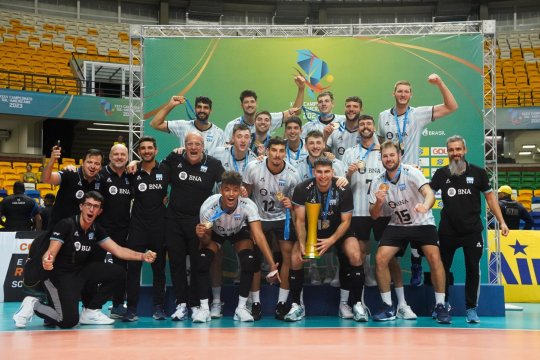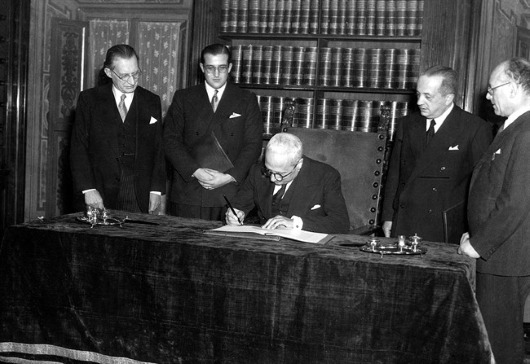#bruno de nicola
Explore tagged Tumblr posts
Text




CAMPEONES SUDAMERICANOS 2023

#ARGENTINA#SELECCIÓN ARGENTINA#LUCIANO DE CECCO#AGUSTIN LOSER#FACUNDO CONTE#SANTIAGO DANANI#LUCIANO VICENTIN#PABLO KUKARTSEV#BRUNO LIMA#NICOLAS ZERBA#MARCELO MENDEZ#MANUEL ARMOA#JAN MARTINEZ#MARTÍN RAMOS#MATIAS SANCHEZ#EZEQUIEL PALACIOS#LUCIANO PALONSKY#MATIAS GUIRAUDO
2 notes
·
View notes
Text
Cécile A. HOLDBAN (et trente poètes), Machines, le Réalgar, mai 2024, 134 pages, 23€
Une chronique de Marc Wetzel Cécile A. HOLDBAN (et trente poètes), Machines, le Réalgar, mai 2024, 134 pages, 23€ La peintre-poète Cécile Holdban dessine (au lavis) une trentaine de “machines” – chacune légendée et reproduite – qu’elle propose à autant de camarades écrivains de prolonger-commenter d’un récit de leurs choix et façon. Ce que ces vingt-neuf hommes et une femme font (à la fois…

View On WordPress
#Alain Roussel#Antoine Boisclair#Benoît Artige#Bertrand Runtz#Bruno Grégoire#Camille Loivier#Cécile A. Holdan#Christian Garcin#Christian Viguié#Denis Montebello#Etienne Orsini#Frédéric Jacquin#Gérald Purnelle#Gilles Ortlieb#Howard Mccord#Jaques Lèbre#Jean Marc Sourdillon#Jean Rouaud#Jean-Baptiste Para#Jean-François Agostini#Jean-Philippe De Tonnac#jean-Pierre Chambon#Jean-pierre Nedelec#Julien Boutonnier#Laurent Albarracin#Le réalgar#Lionel Gerin#Machines#Nicolas Rouzet#Piergiorgio Viti
0 notes
Text
I limoni. Annuario della Poesia in Italia — 2023 - a cura di Francesco De Nicola - Gammarò Edizioni
I limoni. Annuario della Poesia in Italia — 2023 – a cura di Francesco De Nicola Pagine 260 – ISBN: 979-1280649539 – Prezzo: 21 euro In libreria dal 18 aprile Gammarò Edizioni Dopo il successo dei primi due numeri usciti rispettivamente nella primavera del 2022 e del 2023, ecco ora, sempre a cura di Francesco De Nicola ed edito da Gammarò, il terzo numero di questo originale – e probabilmente…

View On WordPress
#2023#a cura di Francesco De Nicola#Annuario della Poesia in Italia#Biancamaria Frabotta#Bruno Lauzi#Dino Campana#Domenico Adriano#Gammarò Edizioni#Giuseppe Grattacaso#i limoni#Patrizia Cavalli#Valentina Colonna
0 notes
Text
Nicolas Granier - Brèves de poésie - "Des chemins pleins de départs", de Martine Rouhart - Toi éditions (Cecile Ossant )-préface de Bruno Mabille.
Quelques extraits du recueil ! Que nos rêvesdurentplus fortplus longtempsque nos nuits Les vitresencore bleueset la pagetoute blanchede silence Existe-t-il un ailleursoù blottir nos âmes rapiécéesoù chacun viendrait rêverdans la tête des autres On s’agitetentant de remplirles videsalors qu’en rêvantles yeux ouvertson emportele monde entieravec nous On penseque je rêvede volerje cherche…

View On WordPress
#de Martine Rouhart - Toi éditions (Cecile Ossant )-préface de Bruno Mabille.#Nicolas Granier - Brèves de poésie - "Des chemins pleins de départs"
0 notes
Text
audio dell'incontro / confronto / dialogo sui video proiettati il 17 aprile 2023 allo studio campo boario
Gli audio fanno riferimento al confronto pubblico con gli spettatori dei video proiettati nel contesto della rassegna Incontri ravvicinati tra arte e cinema, allo Studio Campo Boario, il 17 aprile scorso. (La locandina è riportata più in basso). Lo specifico intervento di Antonio Francesco Perozzi, dedicato ai quattro prologues dell’ensemble INDEX 03 (Marco Ariano, Pietro D’Agostino, Marco…

View On WordPress
#Alberto D&039;Amico#Antonio Francesco Perozzi#audiovideo#Bruno Lo Turco#cinema#improvised music#Incontri ravvicinati tra arte e cinema#index#INDEX 03#Luca Venitucci#Marco Ariano#Marco Giovenale#Massimo Arduini#MG#music#musica#musica di improvvisazione#Nicola De Simone#Pietro D&039;Agostino#prologue#prologues#Roberta Melasecca#scritture di ricerca#Studio Campo Boario#Una percentuale davvero irrisoria#video
0 notes
Text

Though Qutlugh Turkan (c. 1208/1213–1283) began her life as a slave, she rose to become a ruler in her own right, ushering in a golden age for her lands.
A resourceful wife
Qutlugh Turkan was likely born in Transoxania between 1208 and 1213. She was enslaved as a child, purchased by a merchant from Isfahan, and given an excellent education. In 1235, she married Qutb al-Din Muhammad, the nephew of Buraq Hajib, the founder of the ruling dynasty of Kerman (in present-day Iran), a local power that emerged after the Mongol invasions.
After Buraq’s death, the Mongol Great Khan Ögedei granted Kerman to Buraq’s son, prompting Turkan and her husband to move to Transoxania. During this period, her intelligence and resourcefulness proved vital to her husband’s survival, earning him the of the local nobility.
In 1252, Qutb al-Din was installed as the ruler of Kerman. When he died five years later, it was time for Turkan to step into power.
Queen of a golden age
Turkan assumed control of Kerman in 1257, even though her husband’s male heirs were alive. The transition appears to have been smooth, with little opposition to a woman ascending the throne. She quickly established her authority, dispatching gifts to secure recognition of her rule.
Initially, Hulegu Khan granted her authority only over civil affairs, but Turkan’s persistence won her full control, including military oversight. She ruled independently for 26 years, a period celebrated as a golden age for the region of Kerman. The khutbah (Friday sermon) was proclaimed in her name in mosques, and her name appeared on coins.
Her reign brought stability and economic prosperity. Turkan was known for her equitable administration of justice and her benevolence. During times of famine, she opened the granaries to feed her people. She also initiated major building projects, including a madrasa, a hospital, a mosque, and fortified borders with new fortresses.

Coin minted during Turkan's reign
Challenges and Deposition
Turkan forged alliances with the Mongols, even marrying her daughter Padishah Khatun to Abaqa Khan, the ruler of Iran starting in 1265. She also sent troops led by her stepson (or possibly her biological son) Hijaj Sultan to support Abaqa.
However, Hijaj turned against her, publicly mocking her with this verse:
Young are your destiny and star, but old is your fortune; the one that is old should make way for the young.
Turkan sought Abaqa’s support and was reaffirmed as the ruler of Kerman. Hijaj’s attempt to depose her failed, forcing him to flee to Delhi, where he died a decade later.
Turkan’s fortunes changed with Abaqa’s death. His successor, Tegüder Ahmad, granted Kerman to her stepson, Suyurghatmish, ending her rule in 1282. Her efforts to reclaim the throne were unsuccessful and she died shortly afterward in a city in northern Iran.
Turkan’s daughter, Padishah Khatun later reclaimed the throne and ruled Kerman in her turn.
Enjoyed this post? You can support me on Ko-fi!
Further reading
De Nicola Bruno, Women in Mongol Iran: The Khatuns 1206-1335
Mernissi Fatima, The Forgotten queens of Islam
“QOTLOḠ TARKĀN ḴĀTUN”, Encyclopedia Iranica
#Qutlugh Turkan#history#women in history#women's history#historyedit#13th century#medieval women#ruling queens#queens#powerful women#iran#iranian history#kerman#central asian history
76 notes
·
View notes
Text
PBS MASCULINOS POR EDAD
Hola personitas. Venimos con un aporte que nos ha costado un tiempito reunir. Es posible que algunos PB tengan 1 añito más de lo que pone, porque igual cumplieron recién. Esperamos les guste ^^
-14
Tydus Talbott (9)
Diesel Rojas (11)
Diezel Ortiz (11)
Christian Convery (13)
Paxton Booth (13)
Ryan Buggle (13)
14 / 17
Matthew Illesley (14)
Iain Armitage (15)
Gavin Magnus (16)
Hayden Haas (16)
Jacob Tremblay (16)
Walker Bryant (16)
Andrew Ponch (17)
Jentzen Ramirez (17)
Sawyer Sharbino (17)
18 / 22
Noah Jupe (18)
Noah Schnapp (18)
Thiago Vernal (18)
Alex Sampson (19)
Armani Jackson (19)
Blake Talabis (19)
Brandon Rossel (19)
Brandon Spink (19)
Casey Simpson (19)
Dante Albidone (19)
Diego Martir (19)
Dylan Kingwell (19)
Eric Montanez (19)
Flynn Curry (19)
Gavin Lewis (19)
Harry Still (19)
Harvey Petito (19)
Jack Dylan Grazer (19)
Jackson A. Dunn (19)
Jacob Buster (19)
Jaden Michael (19)
Martin Rompeltien (19)
Max Valenzuela (19)
Maximo Rivano (19)
Nicolas Cantu (19)
Raúl Balilla (19)
William Franklyn Miller (19)
Zane Austin (19)
Asher Angel (20)
Finn Wolfhard (20)
Gaten Matarazzo (20)
Jaeden Martell (20)
Joaquín Bondoni (20)
Johnny Orlando (20)
Aidan Gallagher (20)
Levi Miller (20)
MattyB (20)
Wyatt Oleff (20)
Andrés Vázquez (21)
Caleb McLaughlin (21)
Gregory Kasyan (21)
Lewis MacDougall (21)
Hunter Rowland (22)
Lucas Jade Zumann (22)
Ty Simpkins (22)
24 / 27
Chandler Riggs (24)
Charlie Plummer (24)
Mateus Ward (24)
Owen Teague (24)
Devin Druid (25)
Dylan Sprayberry (25)
Hero Fiennes-Tiffin (25)
Jaden Smith (25)
Jungkook (25)
Lucky Blue Smith (25)
Shawn Mendes (25)
Asa Butterfield (26)
Austin Abrams (26)
Colin Ford (26)
Dylan Minnette (26)
Jacob Elordi (26)
KJ Apa (26)
Lucas Hedges (26)
Michael Ronda (26)
Miguel Bernardeau (26)
Tye Sheridan (26)
Álvaro Rico (27)
Austin Crute (27)
Charlie Rowe (27)
David Castro (27)
Jacob Lofland (27)
Joe Keery (27)
Kim Taehyung (27)
Kodi Smit-McPhee (27)
Miguel Herrán (27)
Nathan Westling (27)
Noah Centineo (27)
Park Ji-Min (27)
Ross Lynch (27)
Skyler Gisondo (27)
Timothée Chalamet (27)
Tom Holland (27)
29 / 32
Alex Lawther (29)
Cody Christian (29)
Dacre Montgomery (29)
Ellar Coltrane (29)
Kim Namjoon (29)
Nat Wolff (29)
Nick Robinson (29)
RJ Cyler (29)
Tony Mahfud (29)
Alexander Gould (30)
Ansel Elgort (30)
Charlie Heaton (30)
Connor Jessup (30)
Harry Styles (30)
JHope (30)
Mitchell Hope (30)
Moisés Arias (30)
Adam Hicks (31)
Alberto Rosende (31)
Cameron Monaghan (31)
Ezra Miller (31)
Jin (31)
Josh Hutcherson (31)
Min Yoongi (31)
Nick Jonas (31)
Will Poulter (31)
Zayn Malik (31)
Blas Cantó (31)
Casey Cott (31)
Cole Sprouse (31)
Dylan O’Brien (31)
Dylan Sprouse (31)
Jaime Lorente (31)
Jordan Connor (31)
Louis Tomlinson (31)
Tyler Posey (31)
Ben Hardy (32)
Charles Melton (32)
Cody Kearsley (32)
Callum Worthy (32)
Ed Sheeran (32)
Francisco Lachowski (32)
Jorge López (32)
Stephen James (32)
Vadhir Derbez (32)
33 / 42
Aaron Taylor-Johnson (33)
Alexander Calvert (33)
Bill Skarsgard (33)
Caleb Landry Jones (33)
Chris Colfer (33)
David Castañeda (33)
Dominic Sherwood (33)
Grant Gustin (33)
Jacob Anderson (33)
Justin H. Min (33)
Lee Jong-Suk (33)
Liam Hemsworth (33)
Luke Baines (33)
Nicholas Hoult (33)
Ross Butler (33)
Simon Nessman (33)
Taron Egerton (33)
Thomas Brodie-Sangster (33)
Alfred Enoch (34)
Chai Hansen (34)
Chord Overstreet (34)
Daniel Radcliffe (34)
Harry Melling (34)
Keegan Allen (34)
Joe Jonas (34)
John Bradley-West (34)
Matthew Lewis (34)
Prince Royce (34)
Rupert Grint (34)
Sean O’Pry (34)
Cody Walker (35)
Dougie Poynter (35)
Jake Abel (35)
Matthew Daddario (35)
Robbie Amell (35)
Robert Sheehan (35)
Sonny John Moore (35)
Tom Felton (35)
Tyler Hoechlin (35)
Zac Efron (35)
Alfie Allen (36)
Brendon Urie (36)
Darren Criss (36)
Don Benjamin (36)
Evan Peters (36)
Ian Harding (36)
Jeff Ward (36)
Kit Harington (36)
Lee Min-Ho (36)
Manny Jacinto (36)
Michael B. Jordan (36)
Nick Bateman (36)
Ricardo Baldin (36)
Tyler Blackburn (36)
Will Tudor (36)
Winston Duke (36)
Bruno Mars (37)
Cameron Britton (37)
Colin Morgan (37)
Daniel Sharman (37)
Jamie Bell (37)
Luke Youngblood (37)
Osric Chau (37)
Richard Madden (37)
Robert Pattinson (37)
Sam Claflin (37)
Shia LaBeouf (37)
Yon González (37)
Brant Daugherty (38)
Dave Franco (38)
David Gallagher (38)
Iwan Rheon (38)
Jon Kortajarena (38)
Kellan Lutz (38)
Luke Mitchell (38)
Theo James (38)
Tom Hopper (38)
Adam Devine (39)
Adam Driver (39)
Alfonso Herrera (39)
Bradley James (39)
Calvin Harris (39)
Gaston Dalmau (39)
Jesse Eisenberg (39)
Steven Yeun (39)
Andrew Garfield (40)
Brett Dalton (40)
Chris Hemsworth (40)
Domhnall gleeson (40)
Henry Cavill (40)
Yusuf Gatewood (40)
Adam Lambert (41)
Eddie Redmayne (41)
Harry Shum Jr (41)
Ha Seok-Jin (41)
Jamie Dornan (41)
Jared Padalecki (41)
Ju Ji-Hoon (41)
Sebastian Stan (41)
Ben Barnes (42)
Chris Evans (42)
Elijah Wood (42)
Jake Gyllenhaal (42)
Jesse Williams (42)
Joseph Gordon-Levitt (42)
Joseph Morgan (42)
Justin Chon (42)
Justin Timberlake (42)
Kunal Nayyar (42)
Rami Malek (42)
Ryan Gosling (42)
Simon Helberg (42)
Stephen Amell (42)
Tom Hiddleston (42)
43 / 52
Channing Tatum (43)
Charlie Hunnam (43)
Chris Pine (43)
Daniel Henney (43)
David Gandy (43)
Gilles Souteyrand (43)
Jason Schwartzman (43)
Jason Segel (43)
Matthew Gray Gubler (43)
Sam Heughan (43)
William Jackson Harper (43)
Adam Levine (44)
Anthony Mackie (44)
Chris Pratt (44)
Ian Somerhalder (44)
James McAvoy (44)
Jason Momoa (44)
Jesse Spencer (44)
Kevin Hart (44)
Kristofer Hivju (44)
Tyrese Gibson (44)
Chadwick Boseman (45)
Daniel Brühl (45)
Jake Johnson (45)
James Franco (45)
Jensen Ackles (45)
Josh Hartnett (45)
Ludacris (45)
Matt Bomer (45)
Tom Hardy (45)
Alex O’Loughlin (46)
Chiwetel Ejiofor (46)
Eric Christian Olsen (46)
Joe Manganiello (46)
John Cena (46)
Jon Bernthal (46)
Kal Penn (46)
Michael Fassbender (46)
Milo Ventimiglia (46)
Orlando Bloom (46)
Ryan Reynolds (46)
Scott Caan (46)
Zachary Quinto (46)
Benedict Cumberbatch (47)
Cillian Murphy (47)
Colin Farrell (47)
Kristian Nairn (47)
Michael Peña (47)
Pablo Puyol (47)
Rodrigo de la Serna (47)
Adam Rodriguez (48)
Bradley Cooper (48)
Casey Affleck (48)
David Harbour (48)
Joaquin Phoenix (48)
Johnny Galecki (48)
Leonardo Dicaprio (48)
Masi Oka (48)
Taika Waititi (48)
Tobey Maguire (48)
Andrew Lincoln (49)
Christian Bale (49)
Isaiah Mustafa (49)
Josh Radnor (49)
Misha Collins (49)
Sendhil Ramamurthy (49)
Adam Scott (50)
Adrien Brody (50)
Idris Elba (50)
Jason London (50)
Jim Parsons (50)
Josh Duhamel (50)
Neil Patrick Harris (50)
Omar Epps (50)
Ben Affleck (51)
Dwayne Jhonson (51)
Jared Leto (51)
John Cho (51)
Justin Lin (51)
Karl Urban (51)
Luke Wilson (51)
Martin Freeman (51)
Matt Schulze (51)
Sung Kang (51)
Damian Lewis (52)
Ewan McGregor (52)
Jeremy Renner (52)
Matt Damon (52)
Mark Wahlberg (52)
Michael C. Hall (52)
Paul Bettany (52)
Sean Astin (52)
53 / 62
Chris O’Donnell (53)
Gerard Butler (53)
Henry Simmons (53)
Matthew McConaughey (53)
Michael Trucco (53)
Nikolaj Coster-Waldau (53)
Richard Speight Jr. (53)
Shemar Moore (53)
Simon Pegg (53)
Skeet Ulrich (53)
Vince Vaughn (53)
Warwick Davis (53)
Dave Bautista (54)
Hugh Jackman (54)
Jack Black (54)
Jason Bateman (54)
Javier Bardem (54)
Norman Reedus (54)
Owen Willson (54)
Paul Rudd (54)
Peter Dinklage (54)
Rory McCann (54)
Toby Stephens (54)
Will Smith (54)
Aidan Gillen (55)
Daniel Dae Kim (55)
Jamie Foxx (55)
Josh Brolin (55)
LL Cool J (55)
Mark Rufalo (55)
Tom Goodman-Hill (55)
Jason Statham (56)
Jon Favreau (56)
Kiefer Sutherland (56)
Vin Diesel (56)
Vincent Cassel (56)
Will Ferrell (56)
Ben Stiller (57)
Jeffrey Dean Morgan (57)
William Zabka (57)
Conleth Hill (58)
Don Cheadle (58)
Keanu Reeves (58)
Mark Pellegrino (58)
Martin Lawrence (58)
Robert Downey Jr. (58)
Brad Pitt (59)
Lenny Kravitz (59)
Mark Sheppard (59)
Nicholas Cage (59)
Russel Crowe (59)
Jerome Flynn (60)
Jet li (60)
Jhonny Depp (60)
Mike Myers (60)
Ralph Fiennes (60)
Clark Gregg (61)
Ralph Macchio (61)
Thomas Gibson (61)
Tom Cruise (61)
Wesley Snipes (61)
Eddie Murphy (62)
Forest Whitaker (62)
George Clonney (62)
Hugh Grant (62)
Iain Glen (62)
Jean-Claude Van Damme (62)
Laurence Fishburne (62)
Woody Harrelson (62)
63 / 72
Antonio Banderas (63)
Hugo Weaving (63)
Ken Watanabe (63)
Sean Penn (63)
Hugh Laurie (64)
Sean Bean (64)
Viggo Mortensen (64)
Alec Baldwin (65)
Dolph Lundgren (65)
Andy García (67)
Mel Gibson (67)
Tom Hanks (67)
Bruce willis (68)
Denzel Washington (68)
Kevin Costner (68)
Michael Rooker (68)
Jackie Chan (69)
Jeff Goldblum (70)
Pierce Brosnan (70)
Joe Pantoliano (71)
Liam Neeson (71)
Marc Hamill (71)
Mark Harmon (71)
Bill Murray (72)
Kurt Russell (72)
+73
Richard Gere (74)
Samuel L. Jackson (74)
Ted Danson (75)
Arnold Swarzenneger (76)
Tommy Lee Jones (76)
Sylvester Stalone (77)
Tom Selleck (78)
Ben Kingsley (79)
Robert de Niro (80)
Harrison Ford (81)
Al Pacino (83)
Patrick Stewart (83)
Ian McKellen (84)
Anthony Hopkins (85)
Jack Nicholson (86)
Morgan Freeman (86)
Donald Sutherland (88)
Michael Caine (90)
114 notes
·
View notes
Text
Nel nome dei Padri

Il Presidente De Nicola firma la Costituzione. Alla sinistra dell'immagine: De Gasperi, alla destra: Terracini.
Qui sotto l'elenco dei membri della Commissione per la Costituzione (o Commissione dei 75).
Gruppo democristiano (26 membri)
Gaspare Ambrosini
Giuseppe Maria Bettiol (sostituisce dal 10 aprile 1947 Giacinto Froggio, dimissionario, che il 6 febbraio 1947 aveva sostituito Ezio Vanoni, divenuto ministro)
Pietro Bulloni
Giuseppe Cappi
Giuseppe Caronia (sostituisce dal 22 febbraio 1947 Giuseppe Togni, divenuto sottosegretario di stato)
Giuseppe Codacci Pisanelli
Camillo Corsanego
Luigi De Michele
Francesco Dominedò
Giuseppe Dossetti
Maria Federici
Giacinto Froggio (sostituisce dal 2 luglio 1947 Umberto Tupini, divenuto ministro)
Giuseppe Fuschini
Angela Gotelli (sostituisce dal 6 febbraio 1947 Carmelo Caristia, dimissionario)
Giorgio La Pira
Giovanni Leone
Salvatore Mannironi
Giuseppe Micheli (sostituisce dal 22 febbraio 1947 Umberto Merlin, divenuto sottosegretario di stato)
Aldo Moro
Costantino Mortati
Attilio Piccioni
Giuseppe Rapelli
Ferdinando Storchi (sostituisce dal 2 luglio 1947 Amintore Fanfani, divenuto ministro)
Emilio Paolo Taviani
Egidio Tosato
Giovanni Uberti (sostituisce dal 24 luglio 1946 Giovanni Ponti, dimissionario)
Gruppo comunista (13 membri)
Giuseppe Di Vittorio (sostituisce dal 10 dicembre 1946 Mario Assennato, dimissionario, che il 24 settembre 1946 aveva sostituito lo stesso Di Vittorio, dimissionario)
Edoardo D'Onofrio (sostituisce dal 27 febbraio 1947 Umberto Terracini)
Antonio Giolitti (sostituisce dal 29 maggio 1947 Riccardo Ravagnan, dimissionario)
Ruggero Grieco (Vice Presidente)
Nilde Iotti
Vincenzo La Rocca
Renzo Laconi (sostituisce dal 19 settembre 1946 Fabrizio Maffi, dimissionario)
Concetto Marchesi
Guido Molinelli (sostituisce dal 30 maggio 1947 Carlo Farini, dimissionario, che il 19 settembre aveva sostituito Giorgio Amendola, dimissionario)
Umberto Nobile
Teresa Noce
Antonio Pesenti (sostituisce dal 10 dicembre 1946 Bruno Corbi, dimissionario, che il 24 settembre 1946 aveva sostituito lo stesso Pesenti, dimissionario)
Palmiro Togliatti
Partito Socialista Italiano (7 membri)
Leonetto Amadei (sostituisce dal 10 dicembre 1946 Giovanni Lombardi, deceduto, che il 25 luglio 1946 aveva sostituito Alessandro Pertini, dimissionario)
Lelio Basso
Michele Giua
Ivan Matteo Lombardo
Pietro Mancini
Angelina Merlin
Ferdinando Targetti
Partito Socialista Lavoratori Italiani (6 membri)
Alessandro Bocconi
Emilio Canevari
Eduardo Di Giovanni (sostituisce dall'11 settembre 1946 Alberto Simonini, dimissionario)
Gustavo Ghidini (Vice Presidente)
Edgardo Lami Starnuti
Paolo Rossi
Gruppo Repubblicano (4 membri)
Giovanni Conti
Francesco De Vita (decaduto perché sottosegretario dal 22 dicembre 1947)
Tomaso Perassi (Segretario)
Oliviero Zuccarini
Unione Democratica Nazionale (4 membri)
Aldo Bozzi
Giuseppe Paratore
Giovanni Porzio
Vito Reale (sostituisce dal 16 giugno 1947 Giuseppe Grassi, divenuto ministro)
Gruppo Autonomista (3 membri)
Giulio Bordon
Piero Calamandrei
Emilio Lussu
Fronte liberale democratico dell'Uomo Qualunque (3 membri)
Francesco Colitto
Francesco Marinaro (Segretario)
Ottavio Mastrojanni
Gruppo Liberale (3 membri)
Bartolomeo Cannizzo (sostituisce dal 14 dicembre 1946 Gennaro Patricolo, dimissionario, che il 24 luglio 1946 aveva sostituito Ottavia Penna Buscemi, dimissionaria)
Orazio Condorelli (sostituisce dal 17 ottobre 1947 Roberto Lucifero d'Aprigliano, dimissionario)
Guido Cortese (sostituisce dal 27 giugno 1947 Luigi Einaudi, divenuto ministro)
Gruppo Misto (3 membri)
Gustavo Fabbri
Andrea Finocchiaro Aprile
Meuccio Ruini (Presidente)
Democrazia del Lavoro (2 membri)
Mario Cevolotto
Enrico Molé
Unione Nazionale (1 membro)
Pietro Castiglia
Fonte: Wikipedia.
18 notes
·
View notes
Text
Opera on Youtube 4
L'Elisir d'Amore (The Elixir of Love)
Maggio Musicale Fiorentino, 1967 (Carlo Bergonzi, Renata Scotto; conducted by Gianandrea Gavazzeni; no subtitles)
Metropolitan Opera, 1981 (Luciano Pavarotti, Judith Blegen; conducted by Nicola Rescigno; Spanish subtitles) – Part I, Part II
Metropolitan Opera, 1991 (Luciano Pavarotti, Kathleen Battle; conducted by James Levine; English subtitles) – Part I, Part II
Vienna State Opera, 2005 (Rolando Villazón, Anna Netrebko; conducted by Alfred Eschwé; English subtitles)
Theatro da Paz, Brazil, 2013 (Atalla Ayan, Carmen Monarcha; conducted by Emiliano Patarra; Brazilian Portuguese subtitles)
Teatro Manoel, Malta, 2015 (Cliff Zammit Stevens, Shoushik Barsoumian; conducted by Philip Walsh; English subtitles)
Vienna State Opera, 2017 (Dmitry Korchak, Olga Peretyatko; conducted by Marco Armiliato; no subtitles) – Part I, Part II
Ópera de Bellas Artes, Mexico City, 2017 (Ramón Vargas, Olivia Gorra; conducted by Guido Maria Guida; Spanish subtitles)
Vienna State Opera, 2018 (Benjamin Bernheim, Andrea Carroll; conducted by Frédéric Chaslin; no subtitles)
San Francisco Opera, 2023 (Pene Pati, Slávka Zámečníková; conducted by Ramón Tebar; English subtitles)
Hänsel & Gretel
Vittorio Cottafavi studio film, 1957 (Fiorenza Cossotto, Jan Poleri; conducted by Nino Sanzogno; sung in Italian with Italian subtitles)
August Everding studio film, 1981 (Brigitte Fassbaender, Edita Gruberova; conducted by Georg Solti; English subtitles)
Leipzig Opera, 1981 (Annelott Damm, Steffi Ullmann; conducted by Horst Gurgel; no subtitles)
Julliard Opera Center, 1997 (Jennifer Marquette, Sari Gruber; conducted by Randall Behr; English subtitles)
Opera Australia, 1992 (Suzanne Johnston, Christine Douglas; conducted by Johannes Fritzsch; sung in English)
Vienna State Opera, 2015 (Daniel Sindram, Ileana Tonca; conducted by Christian Thielmann; English subtitles)
Pacific Northwest Opera, 2015 (Sylvia Szadovszki, Ksenia Popova; conducted by Clinton Smith; sung in English with English subtitles)
Scottish Opera, 2020 (Kitty Whately, Rhian Lois; conducted by David Parry; sung in English with English subtitles)
Eklund Opera Program, 2020 (Christine Lee, Anna Whiteway; conducted by Nicholas Carthy; sung in English with English subtitles)
Amarillo Opera, 2021 (Sarah Beckham-Turner, Patricia Westley; conducted by Carolyn Watson; English subtitles)
Turandot
Mario Lanfranchi studio film, 1958 (Lucilla Udovick, Franco Corelli; conducted by Fernando Previtali; English subtitles)
Vienna State Opera, 1983 (Eva Marton, José Carreras; conducted by Lorin Maazel; no subtitles)
Royal Opera House, Covent Garden, 1986 (Gwyneth Jones, Franco Bonisolli; conducted by Jacques Delacote; English subtitles)
Forbidden City, Beijing, 1998 (Giovanna Casolla, Sergej Larin; conducted by Zubin Mehta; no subtitles)
Teatro alla Scala; 2001 (Alessandra Marc, Nicola Martinucci; conducted by Georges Prêtre; French subtitles)
Gran Teatre del Liceu, 2009 (Anna Shafajinskaia, Fabio Armiliato; conducted by Giuliano Carella; English subtitles)
Chorégies d'Orange 2012 (Lise Lindstrom, Roberto Alagna; conducted by Michel Plasson; French subtitles)
Wichita Grand Opera, 2015 (Zvetelina Vassileva, Ricardo Tamura; conducted by Martin Mazik; no subtitles)
Teatro de Bellas Artes, Mexico City, 2017 (Gabriela Georgieva, Carlos Galván; conducted by Enrique Patrón de Rueda; Spanish subtitles)
Opera Hong Kong, 2018 (Oksana Dyka, Alfred Kim; conducted by Paolo Olmi; English subtitles)
Eugene Onegin
Prince Regent Theatre, Munich, 1965 (Hermann Prey, Ingeborg Bremert; conducted by Joseph Keilberth; sung in German; no subtitles)
Paris Opera, 1982 (Benjamin Luxon, Galina Vishnevskaya; conducted by Mstislav Rostropovich; French subtitles)
Kirov Opera, 1984 (Sergei Leiferkus, Tatiana Novikova; conducted by Yuri Temirkanov; English subtitles)
Chicago Lyric Opera, 1985 (Wolfgang Brendel, Mirella Freni; conducted by Bruno Bartoletti; Spanish subtitles)
Petr Weigl film, 1988 (Michal Docolomanský dubbed by Bernd Weikl, Magda Vásáryová dubbed by Teresa Kubiak; conducted by Georg Solti; English subtitles)
Festspielhaus Baden-Baden, 1998 (Vladimir Glushchak, Orla Boylan; conducted by Gennadi Rozhdestvensky; English subtitles) – Act I, Act II, Act III
Palau de les Arts Reina Sofia, Valencia, 2011 (Artur Rucinski, Kristine Opolais; conducted by Omer Meir Wellber; no subtitles) – Part I, Part II
Teatro Comunale di Bologna, 2014 (Artur Rucinski, Amanda Echalaz; conducted by Aziz Shokhakimov; English subtitles)
Mariinsky Theatre, 2015 (Andrei Bondarenko, Yekaterina Goncharova; conducted by Valery Gergiev; French subtitles)
Livermore Valley Opera, 2019 (Morgan Smith, Antonina Chehovska; conducted by Alex Katsman; English subtitles)
#opera#complete performances#youtube#l'elisir d'amore#the elixer of love#hänsel und gretel#hansel and gretel#turandot#eugene onegin#gaetano donizetti#engelbert humperdinck#giacomo puccini#pyotr ilyich tchaikovsky
15 notes
·
View notes
Text


"Mourir d'Aimer" d'André Cayatte (1971) - inspiré d'une histoire vraie - avec Annie Girardot, Bruno Pradal, Claude Cerval, Jean Bouise, Marcelle Ranson-Hervé, François Simon, Monique Mélinand, les jeunes Nathalie Nell, Bernard Jeantet, Daniel Bellus et Nicolas Dumayet, et les participations de Jean-Paul Moulinot, Marcel Pérès, Marie-Hélène Breillat et Marthe Villalonga, décembre 2024.
#films#FilmsBretagne#spirit#Cayatte#Girardot#Pradal#Villalonga#Bouise#Cerval#RansonHerve#Simon#Melinand#Nell#Jeantet#Bellus#Dumayet#Moulinot#Peres#Breillat
4 notes
·
View notes
Text
5 notes
·
View notes
Text

“Les fils d’Elohim virent que les filles des hommes étaient belles, et ils en prirent pour femmes.” (Genèse 6, 2)
Les Ailes du Désir et l'Ange confesseur
Les Ailes du Désir : où Wim Wenders révèle comment un esprit pur (Damiel - Bruno Ganz) surplombant le ciel au-dessus de Berlin (Der Himmel über Berlin) se concrétise en devenant chair par le désir d'une femme (Marion - Solveig Dommartin).
Inspiré par Les Ailes du Désir, La Cité des Anges de Brad Silberling n'est pas une adaptation ou un remake (plus ou moins raté), mais un autre film, ouvrant sur la rencontre de la chair comme sortie de son enfer d'un ange caché (Seth - Nicolas Cage), éternel accompagnateur spirituel hospitalier des mourants... Une sortie de l'enfer angélique au prix de la douleur de la mort de la mortelle femme désirée (Maggie - Meg Ryan).
Hypothèse d'un troisième film, L'Ange confesseur, où la femme désirée (Lilith) refuserait à l'ange de devenir chair, le préférant comme esprit pur veillant sur elle et accueillant ses confessions. Et à l'ange (sans nom) regrettant de ne lui offrir qu'un fantasme partagé, jamais concrétisé : "ce qui me lie à vous, cher ange, répondrait-elle, est d'une nature autre que du désir physique… Pour moi, ce lien est plus profond que juste fantasmer à deux… je me suis confiée à vous." Parole rédhibitoire, relent d'insulte, condamnation sans appel. L'esprit pur resterait à son enfer désincarné d'éternel confesseur, veilleur spirituel, accompagnateur d’humains vivant dans la chair, voués à une mort qu'il ne connaîtrait pas.
#Genèse#Wim Wenders#Brad Silberling#L’Évanescence#Apocalypse#“Ils chercheront la mort et ils ne la trouveront pas. Ils désireront mourir mais la mort fuira loin d'eux" Apoc 9.6#mort#petite mort
6 notes
·
View notes
Text
Best Film Editing 2023
Winner
All Dirt Roads Taste of Salt - Lee Chatametikool
Nominees
The Killer - Kirk Baxter Reality - Ron Dulin and Jennifer Vecchiarello Theater Camp - Jon Philpot Tótem - Omar Guzmán The Zone of Interest - Paul Watts

Best Original Score 2023
Winner
The Zone of Interest - Mica Levi
Nominees
The Killer - Trent Reznor and Atticus Ross Killers of the Flower Moon - Robbie Robertson Other People's Children - Robin Coudert & Gael Rakotondrabe Pacifiction - Joe Robinson and Marc Verdaguer Trenque Lauquen - Gabriel Chwojnik

Best Sound Editing 2023
Winner
The Zone of Interest - Johnnie Burn
Nominees
Enys Men - Mark Jenkin and Barney Oram Evil Dead Rise - Peter Albrechtsen The Killer - Ren Klyce No One Will Save You - Will Files and Chris Terhune

Best Sound Mixing 2023
Winner
The Zone of Interest - Johnnie Burn and Tarn Willers
Nominees
All Dirt Roads Taste of Salt - Nicolas de Poulpiquet Infinity Pool - Rob Bertola and Alex Bullick The Killer - Ren Klyce and Stephen Urata Leave the World Behind - Jason King, Beau Borders, John W. Cook Pacifiction - Jordi Ribas and Bruno Tarrière

Best Visual Effects 2023
Winner
Evil Dead Rise
Nominees
Beau is Afraid No One Will Save You
7 notes
·
View notes
Photo

Storia Di Musica #264 - Fabrizio De André - Non Al Denaro Non All’Amore Nè Al Cielo, 1971
La piccola scelta di dischi ispirati a grandi romanzi non poteva che finire con questo disco. Senza dubbio è forse il primo che viene a mente riguardo al tema di un disco italiano che ha la caratteristica appena citata, e rimane uno degli episodi più significati della carriera, straordinaria, del suo autore. Fabrizio De André aveva appena pubblicato un disco che, in teoria, poteva benissimo rientrare nel tema principale di Febbraio: La Buona Novella (1970) infatti era un concept, tipologia molto cara all’autore genovese, che si ispirava ai Vangeli Apocrifi. Il Gesù di De André è profondamente umano, in una Palestina antica che in molti passaggi rimanda ai riflessi dell’Italia degli anni ‘70, in una sorta di porta incantata di quotidianità. Allora lo aiutarono Roberto Danè, produttore, paroliere, arrangiatore che proprio in quegli anni fondava la Produttori Associati (che pubblica il disco) e gli arrangiamenti di Giampiero Reverberi. Album toccante, ha una delle mie canzoni preferite di De André, il Testamento Di Tito. Proprio questa canzone fu registrata dal cantante Michele, nome d’arte di Gianfranco Michele Maisano, come lato b di Susan Dei Marinai, scritta dallo stesso De André nei cui titoli non appare, sostituito dal grande Sergio Bardotti. Il progetto iniziale di un disco ispirato ad uno dei libri più amati da De André doveva essere infatti un progetto curato dallo stesso trio De André, Darè e Reverberi per il cantante Michele, ma dissidi interni ruppero l’accordo, e Reverberi se ne va. A questo punto, De André riprende l’Antologia di Spoon River di Edgar Lee Masters, il libro in questione, e ne inizia a ragionare con la sua amica Fernanda Pivano, colei che, su suggerimento di Cesare Pavese, per prima portò in Italia e tradusse questo viaggio sentimentale e particolare che Lee Masters fa dell’America di provincia, ancora più ricca di contraddizioni e storie marginali. Per chi non lo ricordasse, l’Antologia è una raccolta di poesie-epitaffio della vita dei residenti dell'immaginario paesino di Spoon River sepolti nel cimitero locale, pubblicato tra 1914 e il 1915 sul Reedy's Mirror di Saint Louis, che la Pivano tradusse e che Einaudi pubblicò nel 1943 (prima edizione parziale) e nel 1945 (tutti i 212 epitaffi dei personaggi). De André collabora con un suo amico paroliere, Giuseppe Bentivoglio, con cui scrisse Ballata Degli Impiccati da Tutti Morimmo A Stento del 1968, per i testi e sceglie agli arrangiamenti un fresco diplomato del conservatorio, Nicola Piovani, al suo primo impiego importante di una carriera che lo porterà fino all’Oscar. Ad aiutarli una squadra di musicisti grandiosa: il violista Dino Asciolla, Edda Dell'Orso, soprano, i chitarristi Silvano Chimenti e Bruno Battisti D'Amario, questi tre ultimi storici collaborato di Ennio Morricone, il bassista Maurizio Majorana, membro dei Marc 4, il violoncellista classico d'origine russa Massimo Amfiteatrof, il batterista Enzo Restuccia, il maestro beneventano Italo Cammarota e il polistrumentista Vittorio De Scalzi, membro fondatore dei New Trolls. De André compone 9 brani, partendo come Lee Masters da La Collina, il luogo dove sorge il cimitero dove riposano i defunti di Spoon Rivers. 7 brani sono divisi in due grandi categorie: uomini morti d’invidia, ovvero Un Matto, Un Giudice, Un Blasfemo, Un Malato Di Cuore e uomini di scienza, con le sue contraddizioni etiche, ovvero Un Medico, Un Chimico, Un Ottico. Rimane poi Il Suonatore Jones, l’unico che rimane con lo stesso titolo del libro, che chiude il disco, con De André che però gli “toglie” il violino e lo fa suonatore di flauto. Straordinario è il lavoro di rifacimento e di ricreazioni nei testi: per esempio ne Un Giudice, ispirato a Selah Lively, deriso per la sua statura, in Masters è 5 piedi e 2 pollici (=157 cm circa) e nel testo di De André diviene così: Cosa vuol dire avere\Un metro e mezzo di statura\Ve lo rivelan gli occhi\E le battute della gente. I personaggi dell’invidia sono il giudice che ha trovato nella vendetta la sua alternativa alla derisione di essere basso, il matto che è stato spinto dall'invidia a “imparare la Treccani a memoria” (anche qui splendido gioco di trasposizione, in Lee Masters è l'Enciclopedia Britannica), il malato di cuore che riesce a vincere l'invidia attraverso l'amore, nonostante muoia appena porge le sue labbra su quelle della ragazza di cui è innamorato, Un Blasfemo invece è la canzone più politica, essendo uno strale contro chi “non Dio, ma qualcuno che per noi l'ha inventato / ci costringe a sognare in un giardino incantato”. Degli uomini di scienza, un medico è costretto dalla sua benevolenza, cioè curare i malati gratis, a vendere pozioni “miracolose” essendo caduto in miseria, un chimico è invece una storia di disillusione sull’amore, di un uomo che non capisce le unioni imperfette degli uomini rispetto a quelle perfette delle sostanze chimiche, un ottico invece, che vorrebbe regalare ai clienti un paio di occhiali magici per vedere davvero la realtà, è l’unico che probabilmente non è morto, dato che parla al presente (unicità che è presente anche in Lee Masters). Chiude il disco Il Suonatore Jones, inno alla libertà, di chi non ha voluto chiudere la sua libertà lavorando nei campi ma “Finii con i campi alle ortiche\Finii con un flauto spezzato\E un ridere rauco\E ricordi tanti\E nemmeno un rimpianto”. Oltre la qualità immensa del lavoro testuale è la musica che stupisce: gli arrangiamenti orchestrali, gli sviluppi tematici (come nel caso del motivo principale dell’iniziale La Collina, in continua trasformazione), la sovrapposizione di parti in forma di suite (un Ottico, con evidenti echi progressive ad un certo punto), l’uso di strumenti classici come clavicembali e violini. Sulla copertina della prima edizione, quella che ho pubblicato anche io, c’è un evidente errore grafico, con l’errata accentazione di "né". L’errore fu aggiustato nelle edizioni successive, e nel disco era presenta una lunghissima e delicata intervista di Fernanda Pivano a De André sulla genesi di questo disco e sul libro di Edgar Lee Masters, e alcuni racconti dello scrittore americano erano inseriti all’interno della confezione. Disco memorabile, da riscoprire e che formerà con il successivo, l’amatissimo e criticatissimo Storia Di un Impiegato uscito appena un anno più tardi (ad inizio del 1973) una trilogia lucidissima e potentissima sull’Italia di inizio anni ‘70.
33 notes
·
View notes
Text
oggi, 17 aprile, allo studio campo boario (roma): "una percentuale davvero irrisoria", di nicola de simone; e i quattro video "prologue" dell'ensemble index (= ariano, d'agostino, giovenale + venitucci)

View On WordPress
#Alberto D&039;Amico#Antonio Francesco Perozzi#asemic#Bruno Lo Turco#corto#experimental video#Incontri ravvicinati tra arte e cinema#index#Luca Venitucci#Marco Ariano#Marco Giovenale#Massimo Arduini#Nicola De Simone#Pietro D&039;Agostino#Roberta Melasecca#scrittura asemica#scritture di ricerca#Studio Campo Boario#Tra arte e cinema#video
0 notes
Text

The daughter of a great queen, Padishah Khatun (1256–1295) fought for her rights and proved herself to be a capable and determined ruler.
A strategic alliance
Padishah was the daughter of Qutb al-Din Mohammad, a member of the Qutlugh-Khanid dynasty, which was loyal to the Mongol Empire, and his wife, Qutlugh Turkan. After Qutb al-Din’s death in 1257, Turkan seized power, ruling Kerman (modern-day Iran) in her own name.
Padishah, her mother’s favorite child, received an exceptional education and excelled in poetry and calligraphy. In 1272, she married Abaqa Khan, the ruler of the Ilkhanate. Her marriage came with a grand household, and she frequently met with her mother and acted as her representative at court. This position was vital for defending her mother’s interests and maintaining her rule over Kerman
A wronged daughter
The death of Abaqa Khan in 1282 changed everything. His successor, Tegüder Ahmad, deposed Turkan and handed the throne of Kerman to Turkan’s stepson, Suyurghatmish. Soon after, Turkan passed away. Padishah chose not to accompany her mother’s remains back to Kerman, instead remaining at court to safeguard her interests. However, she sent her sister, Bibi Terken, to represent her in Kerman.
Tegüder’s reign was short-lived. In 1284, his successor Argun summoned Suyurghatmish to court and divided Kerman between Padishah and her rival. Unsurprisingly, Padishah was disappointed by this decision. Meanwhile, Suyurghatmish strengthened his position by marrying a Mongol princess, Kurdujin Khatun, eventually regaining full control of Kerman.
Padishah later married Argun’s brother, Gaykhatu. Although she managed to recover her personal domain of Sirjan in 1289, she had to wait patiently for the tides to shift in her favor.
Queen at last
Argun’s death in 1291 paved the way for Padishah’s return to power. Gaykhatu, now head of the Ilkhanate, reinstated Padishah as ruler of Kerman in 1292. She adopted the title Safwat al-Dunya wa al-Din (“Purity of the World and the Faith”) and also referred to herself as Ḵodāvand-e ʿĀlam (“Lord of the World”), a title that appeared on her coins.
Her first act was to neutralize her opposition. She imprisoned Suyurghatmish, and, doubting his loyalty, had him strangled.
Like her mother, Padishah’s reign was marked by justice and a dedication to the welfare of her people. She encouraged charitable works and extended her influence to nearby regions. Writing under the pen name Lāla Ḵātun, she composed poetry and supported scholars and poets.

Cycle of revenge
The assassination of her husband Gaykhatu in 1295 by his successor, Baydu, placed Padishah in a precarious position. Baydu was married to Shah ʿAlam, Suyurghatmish’s daughter, who sought revenge for her father’s death. Suyurghatmish’s widow, Kurdujin, was also ready to act.
Although Padishah remained in Kerman, many of her supporters abandoned her. She sought alliances but found none. Kurdujin, with the backing of loyal amirs, besieged Kerman, forcing Padishah to surrender.
Padishah was taken to court and eventually assassinated, likely at the instigation of Kurdujin and Shah ʿAlam. Her remains were returned to Kerman, where she was buried in the seminary built by her mother.
Though Kurdujin emerged victorious, she was never formally crowned ruler of Kerman, and her triumph was short-lived. She later became queen of Shiraz in 1319 and was succeeded by her niece, Sultan Khatun, upon her death. Their authority appears to have been more symbolic than political and limited to the city.
Enjoyed this post? You can support me on Ko-fi!
Further reading
De Nicola Bruno, Women in Mongol Iran: The Khatuns 1206-1335
Lambton Ann K. S., Continuity and Change in Medieval Persia Aspects of Administrative, Economic, and Social History, 11th-14th Century
Mernissi Fatima, The Forgotten queens of Islam
“PĀDŠĀH ḴĀTUN”, Encyclopaedia Iranica
#this is probably my last post of the year :)#padishah khatun#history#women in history#women's history#historyedit#13th century#iran#iranian history#queens#powerful women#ilkhanate#mongol history#kurdujin khatun#sultan khatun#kerman#central asian history
40 notes
·
View notes